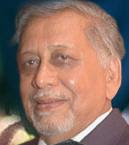With the introduction of Direct Tax Code a new tax regime would start from 2012. Uptill now new tax proposal were submitted to parliament every year at the time presentation of Budget. This would not be required now since that would be taken car of by Taxation Cod. The Direct Tax code is a valuable document of the country IPC or Cr. P. C. The government does not have to change it every year. It can be changed from time to time when circumstances changes.
The DTC has been introduced in parliament for debate and discussion. The Code aims at simplifying rules, improving efficiency and bringing about better compliance. It will replace the existing tax Act of 1957 effecting first April 2012.
DTC originally proposed to substantially raise the tax slab for individual taxpayers. While presenting the proposal in the parliament original proposed was revised yet it has given substantially gain to tax payers. The code stopped the differentiation between male and female taxpayers while proposing the rebate. The senior citizen have been given a minor relief of Rs 10,000/- more making the exemption limit of Rs2.50lakh.
The new tax law proposes to increase the income tax exemption limit from Rs 1.6 lakh to Rs 2 lakh. It also proposes three income tax slabs – 10 per cent on Rs 2-5 lakh annual income, 20 per cent on Rs 5-10 lakh and 30 per cent on annual income upwards Rs 10 lakh.( At present, income between Rs. 1.65 lakh and Rs 5 lakh is taxed at 10 per cent tax, income for Rs 5-8 lakh is taxed at 20 per cent and above Rs 8 lakh, the tax rate is 30 per cent).
DTC has linked the short-term capital gains tax to an investor’s annual income. A short-term capital gains tax of 5 per cent would be applicable for an investor in the income group of Rs 2-5 lakh, 10 per cent in the Rs 5-10 lakh bracket and 15 per cent for those with income over Rs 10 lakh.
Tax-free dividends on equity mutual funds would be a thing of past once theThe code proposes a 5 per cent dividend distribution tax on equity mutual funds and unit-linked insurance plans (ULIPs). At present, dividends on equity mutual funds are tax-free in the hands of investors.
The DTC also proposes a 15 per cent dividend distribution tax (DDT) on equities. However, it has excluded the dividend paid by a subsidiary company to its parent company from any tax liability. These exemptions make sense as dividend paid by a subsidiary to its parent company means the dividend stays within the group.
The most benefits that accrues from the proposal are (1) contribution of upto Rs one lakh in approved funds such as public provident funds would get tax deduction. ( The limit atpresent is Rs seventy thousand ) To enjoy deduction on insurance, the annual premium should not exceed 5 percent of the sum assured.(2) Pension funds have been made tax free and (3) long term capital gains tax would remain tax free. (4) the code proposes additional Rs 50,00 on investment in insurance including Health cover and tuition fees for children as exempt. However, DTC has maintained the status quo on securities transaction tax (STT) and long-term capital gains tax, that is, while STT stays, there would be no long-term capital gains tax on equity and equity related instruments. The original draft of DTC had proposed to do away with STT and levy long-term capital gains tax. One most important step taken in the code is to exemptHRA and LTA upto a prescribed limit. Income on House property will be taxed provided it is rented out actually. Till now it is taxed on notional basis.The proposl of introducing a fair market value in place of the actual rent recived has been done away with.
The threashold for payment of wealth tax has been enhanced to Rs One crore from rs Thirty lakh. The rate of wealth tax would remain one percent. This has been resented by High net worth people.
To us new tax code is welcome move. However tax exemption limt of Rs 2 LKH seemed to be meager because it would be implemented only after two years from now, by that time inflation would neutralize the benefit now given.
The new code proposes a 30 per cent corporate tax against the existing effective rate of 33.22 per cent on account of cess and surcharges. The DTC seeks to impose a minimum alternate tax (MAT) of 20 per cent of the book profit against the existing 18 per cent. The chambers are not very happy on this issue. Tough we can never have a tax code that would satisfy all, but surely the finance minister has tried to given enough reasons to cheer.
------------------------------------------
blogcatalog
Subscribe to:
Post Comments (Atom)





No comments:
Post a Comment